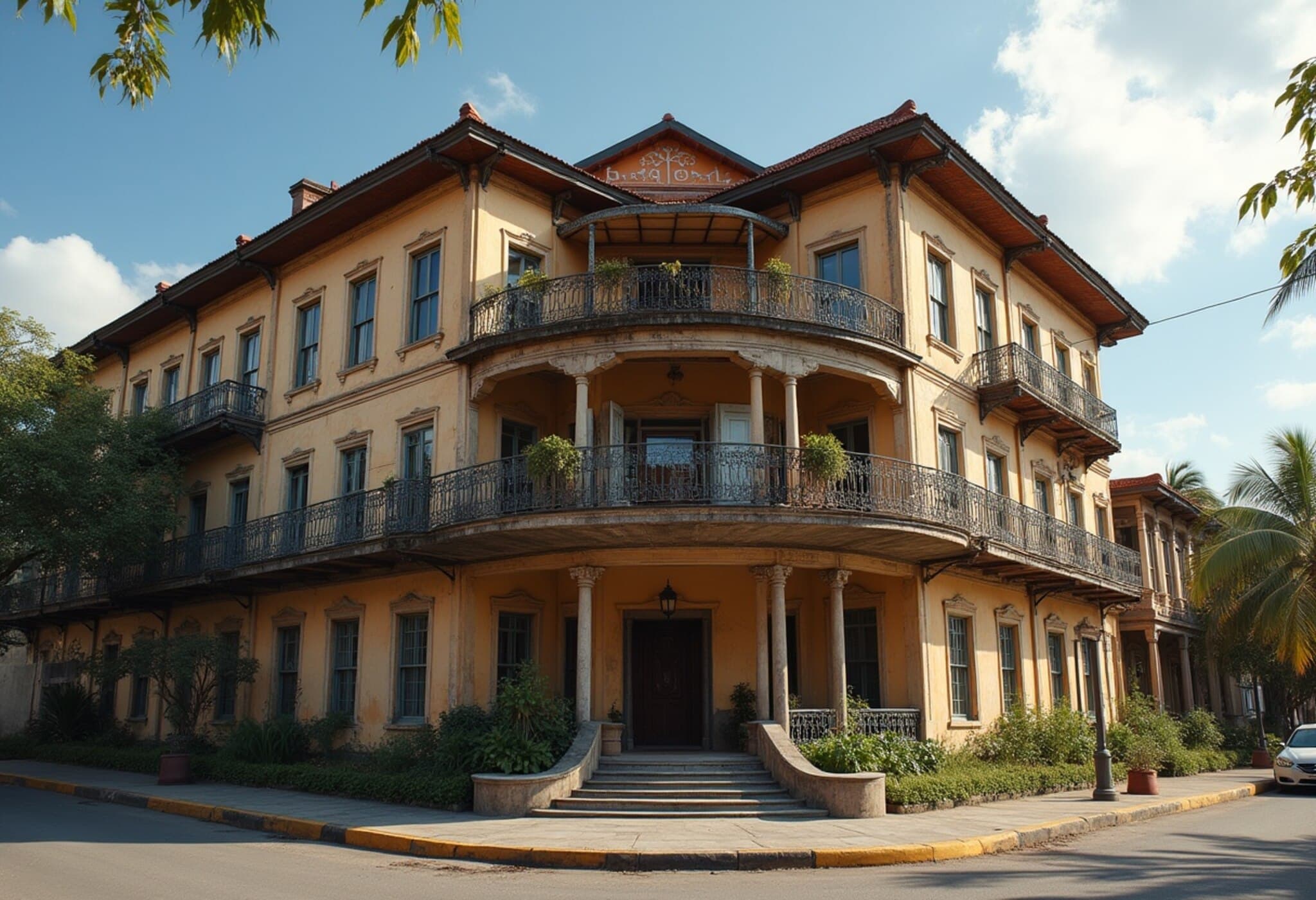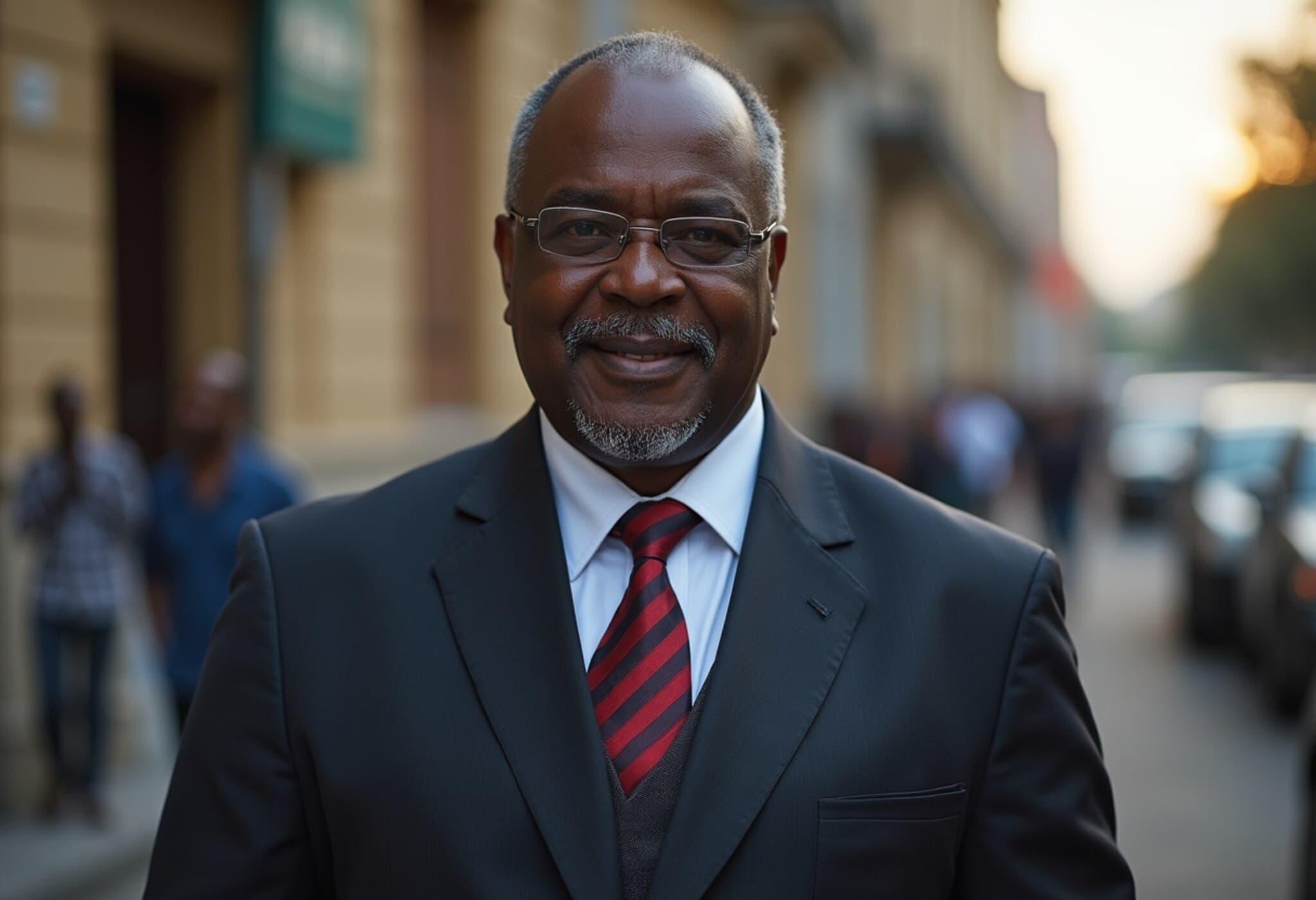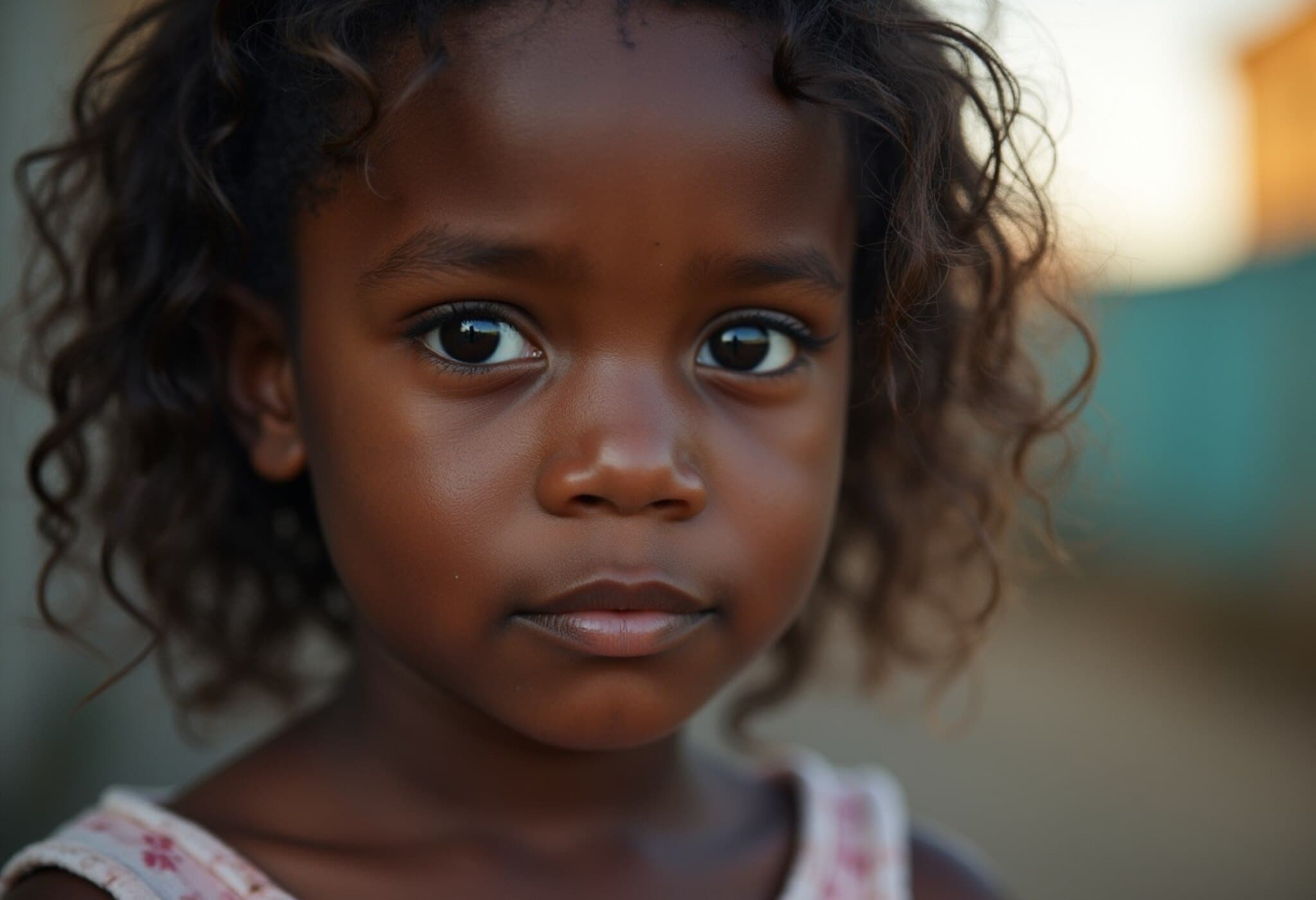Historic Oloffson Hotel Reduced to Ruins as Haiti’s Gang Conflict Deepens
In the heart of Port-au-Prince, Haiti’s storied Oloffson Hotel—an iconic symbol of the nation’s rich heritage and a beacon to artists, writers, and celebrities—has been ravaged by flames in what locals and observers suggest was deliberate arson. This devastating loss highlights the broader crisis gripping Haiti, where criminal gangs have tightened their grip on the capital, turning once vibrant cultural landmarks into flashpoints of violence and despair.
A Century-Old Treasure Lost
The Oloffson, famed for its intricate gingerbread-style architecture—characterized by ornate wooden fretwork, turrets, and sweeping verandas—dates back to the late 19th century and stands as a living testament to Haiti’s artistic and architectural heritage. Originally built as a private mansion for a presidential family persecuted during Haiti’s tumultuous past, it later transformed into a hotel that drew luminaries such as Mick Jagger, Elizabeth Taylor, and the British novelist Graham Greene, who immortalized it in his 1960 novel The Comedians.
“It’s heartbreaking to see such a jewel of our national patrimony consumed by flames,” said Haitian architect Frederick Mangonès. “The loss is not just bricks and wood—it’s the erasure of our history amid a climate of disrespect for human life and culture.”
From Cultural Haven to Conflict Zone
Richard Morse, a Haitian-American businessman and longtime custodian of the Oloffson, confirmed on July 7 that the hotel was “burned to the ground” after an attack on Saturday night. Morse, who managed the hotel for over three decades and extended its legacy through music—forming the famed Haitian roots band RAM—expressed deep sorrow but tempered it with a somber acknowledgment of Haiti’s broader humanitarian crisis.
“I mourn the loss of the hotel, but Haiti’s people are suffering in far more devastating ways,” Morse shared from his residence in Maine. “People are getting killed, raped, displaced. Losing this building is a tragedy, but it pales against the widespread human suffering.”
The Oloffson has not hosted guests for more than a year due to escalating violence. With gangs controlling much of Port-au-Prince, the once-bustling hotel shrank to a skeletal staff, which eventually fled as gunfire claimed the streets.
Why Does This Matter Beyond Haiti?
- Symbol of endangered cultural heritage: The destruction underscores the vulnerability of historic sites amid failing governance and lawlessness.
- Regional instability risks: Haiti’s turmoil affects migration patterns, economic partnerships, and diplomatic relations in the Caribbean and United States.
- Global human rights concern: Widespread violence against civilians, including women, demands urgent international attention and humanitarian aid.
Architecture and History Wed in a Caribbean Melting Pot
The gingerbread style, unique to Haiti, originated from 19th-century architects trained in France who adapted their designs to tropical climates. The Oloffson was a vibrant embodiment of this tradition, with soaring ceilings and wooden verandas offering respite from the Caribbean heat.
Its layered history reflects Haiti’s complex political narratives—from its origins linked to presidential families, to its role as a U.S. marine hospital during the 1915–1934 occupation, and later as a sanctuary for Haiti’s cultural elite and international visitors.
Remembering the Oloffson’s Cultural Pulse
Besides its architectural allure, the hotel was a hub for Haitian music, art, and intellectual exchange. Morse’s band RAM energized Thursday nights, attracting diplomats and artists alike.
The hotel also harbored colorful local characters like Aubelin Jolicoeur, a dapper columnist and confidant famously portrayed by Greene. These human stories imbued the Oloffson with a life beyond bricks—capturing Haiti’s resilience, creativity, and contradictions.
What Lies Ahead for Haiti and Its Heritage?
The destruction of the Oloffson is a stark reminder of the urgent challenges Haiti faces. As criminal gangs expand their reach, and political instability persists, the preservation of cultural heritage competes with immediate humanitarian and security needs.
For policymakers, historians, and international partners, the hotel's fate raises critical questions:
- How can heritage conservation projects be integrated with community security and development efforts?
- What role should the international community play to support Haiti’s fragile institutions and protect its cultural legacy?
- How can Haitian voices be centered in rebuilding strategies to ensure inclusive progress?
The Oloffson’s embers may have cooled, but its story ignites a call to action—to safeguard Haiti’s soul amid adversity.















